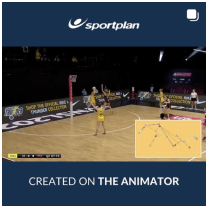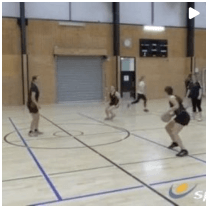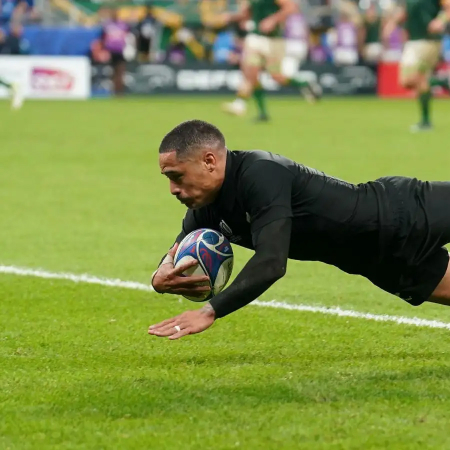TRANSFORM YOUR TEAM'S SEASON WITH PROFESSIONALLY PLANNED SESSIONS
Use our expert plans or build your own using our library of over 700+ drills, and easy-to-use tools.
JOIN NOWwhen you call an advantage to an attacking team and no advantage had been taken due to the ball being intercepted etc. Do you call the play to come back as the team actually was disadvantaged and didn't receive any advantage from the infringing player





Hi Julie,
The advantage call is subject to discussion at all levels of netball. It`s used to indicate that an infringement has been observed but, the umpire believes that it hasn`t interfered with the passage of play when the infringement occurred. It isn`t relevant whether the ball is successfully received after the `advantage` has been called, which is often where conflict arises. The umpire`s decision is made at the point of infringement and not after the pass has been made. The decision is irreversible.
It might be easier to understand through an example:
GD is obstructing but not really affecting the likelihood of a successful pass being able to be made - advantage obstruction GD called - pass made and play continues regardless of outcome. If GD were to shorten their distance or contact, which caused interference after or at the time `advantage` is called, then the umpire should aware a penalty for infringement.
The rule is used to encourage the game to flow and therefore not to penalise or stop for infringements that haven`t clearly interfered with play.
Ellie
Hi Julie,
The advantage call is subject to discussion at all levels of netball. It`s used to indicate that an infringement has been observed but, the umpire believes that it hasn`t interfered with the passage of play when the infringement occurred. It isn`t relevant whether the ball is successfully received after the `advantage` has been called, which is often where conflict arises. The umpire`s decision is made at the point of infringement and not after the pass has been made. The decision is irreversible.
It might be easier to understand through an example:
GD is obstructing but not really affecting the likelihood of a successful pass being able to be made - advantage obstruction GD called - pass made and play continues regardless of outcome. If GD were to shorten their distance or contact, which caused interference after or at the time `advantage` is called, then the umpire should aware a penalty for infringement.
The rule is used to encourage the game to flow and therefore not to penalise or stop for infringements that haven`t clearly interfered with play.
Ellie

in more ways than one




Create a resolution to develop your coaching confidence by seizing the opportunity to discover new drills, turn ideas into action and seek advice from the coaching community.

World Rugby has reportedly conceded Aaron Smith's disallowed try in the World Cup final should have stood.

"It is not only useful for staff who are experienced but a valuable tool for those subject staff who have to take teams."
Use our expert plans or build your own using our library of over 700+ drills, and easy-to-use tools.
JOIN NOW